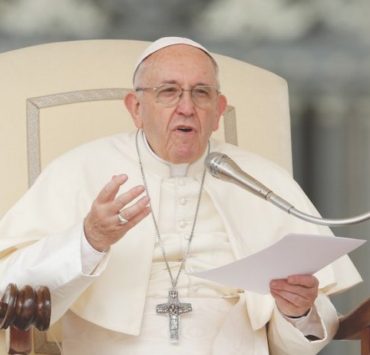Tunisia Judges Begin One Week Strike After President Saied Sacks 57 Judges

Lawyard is a legal media and services platform that provides…
Tunisia’s judges have decided to suspend work across the country’s courts for a week in protest of what they call a “purge” ordered by President Kais Saied who recently sacked scores of their colleagues.
The Tunisian judges said on Saturday that they would also take part in a sit-in to protest the decision by President Saied to expel as many as 57 judges whom he accused of “corruption and protecting terrorists.”
The strike is to start Monday(today), and could be extended if necessary, said Anas Hamaidi, president of the Association of Judges.
Some judges said the purge came after they rejected interventions from Tunisia’s Justice Minister Leila Jaffel and in some cases from people surrounding Saied.
“This injustice will not pass in silence …. These free voices will never be silenced,” Hamaidi said, adding “The attack was not only against judges, but on the law and freedoms.”
Tunisia has been gripped by a political crisis since President Saied dismissed Prime Minister Hichem Mechichi and suspended parliament for 30 days in July 2021. The Tunisian president said at the time that his decision was meant to “save Tunisia, the state, and the Tunisian people,” in the midst of growing public anger and protests against the government’s handling of the COVID-19 pandemic.
The judges, who were holding an emergency meeting in the capital Tunis, said their national strike would see them suspend work at “all criminal, administrative, and financial courts.”
They said they “strongly condemn the president’s continued interference in the judiciary.”
On Thursday, the association called Saied’s decision to sack dozens of judges as a “massacre” amid growing fears about the independence of the judiciary in the North African county.
The association added that the move aimed to allow him to influence the judiciary and create vacancies to appoint his loyalists.
Among those sacked was Youssef Bouzaker, the former head of the Supreme Judicial Council, whose members Saied replaced this year as he moved to take control of the judiciary.
The council had acted as the main guarantor of judicial independence since Tunisia’s 2011 popular uprising that ousted long-time ruler Zine El Abidine Ben Ali and introduce democracy.
Another prominent judge on the list of those sacked was Bachir Akremi, whom some political activists accuse of being too close to main opposition Ennahda party. Ennahda and Akremi both deny that.
They accused Saied of giving himself powers to lay off judges “without the slightest recourse to disciplinary procedures, violating the most basic right to defense as guaranteed in the constitution.”
Rahed Ghannouhci, the speaker of the dissolved parliament, called in a statement for “national forces, parties, and civil society to stand by the judges in resisting the brutal dictatorship to preserve an independent judiciary.”
Saied’s purge of the judiciary has already sparked international outrage and he has been accused of undermining Tunisia’s
democratic institutions.
Lawyard is a legal media and services platform that provides enlightenment and access to legal services to members of the public (individuals and businesses) while also availing lawyers of needed information on new trends and resources in various areas of practice.













